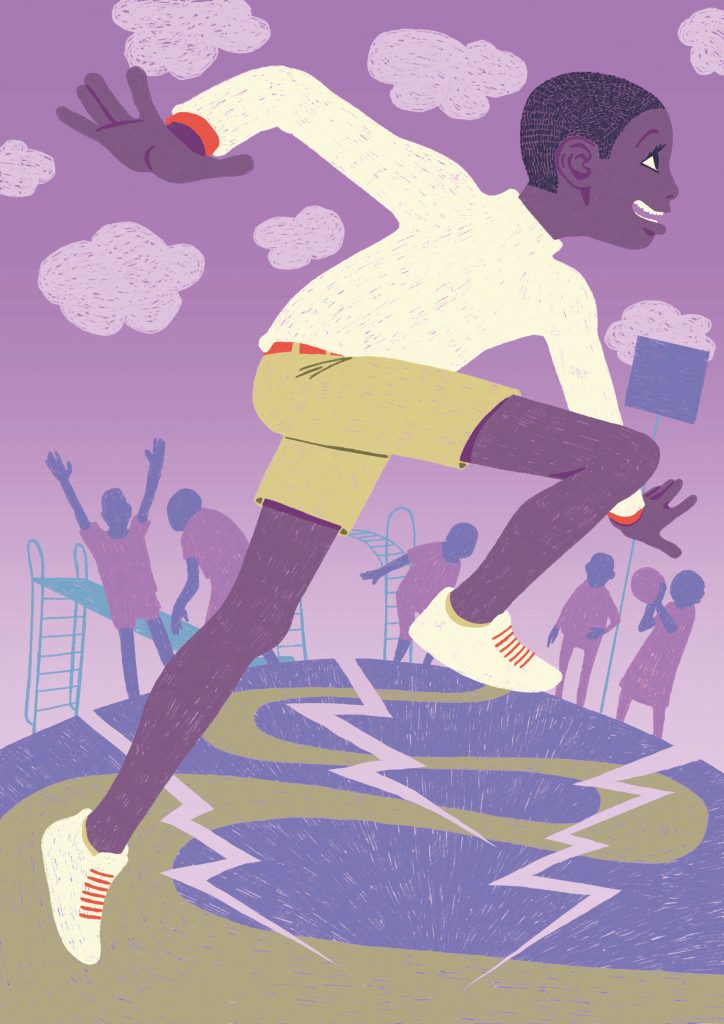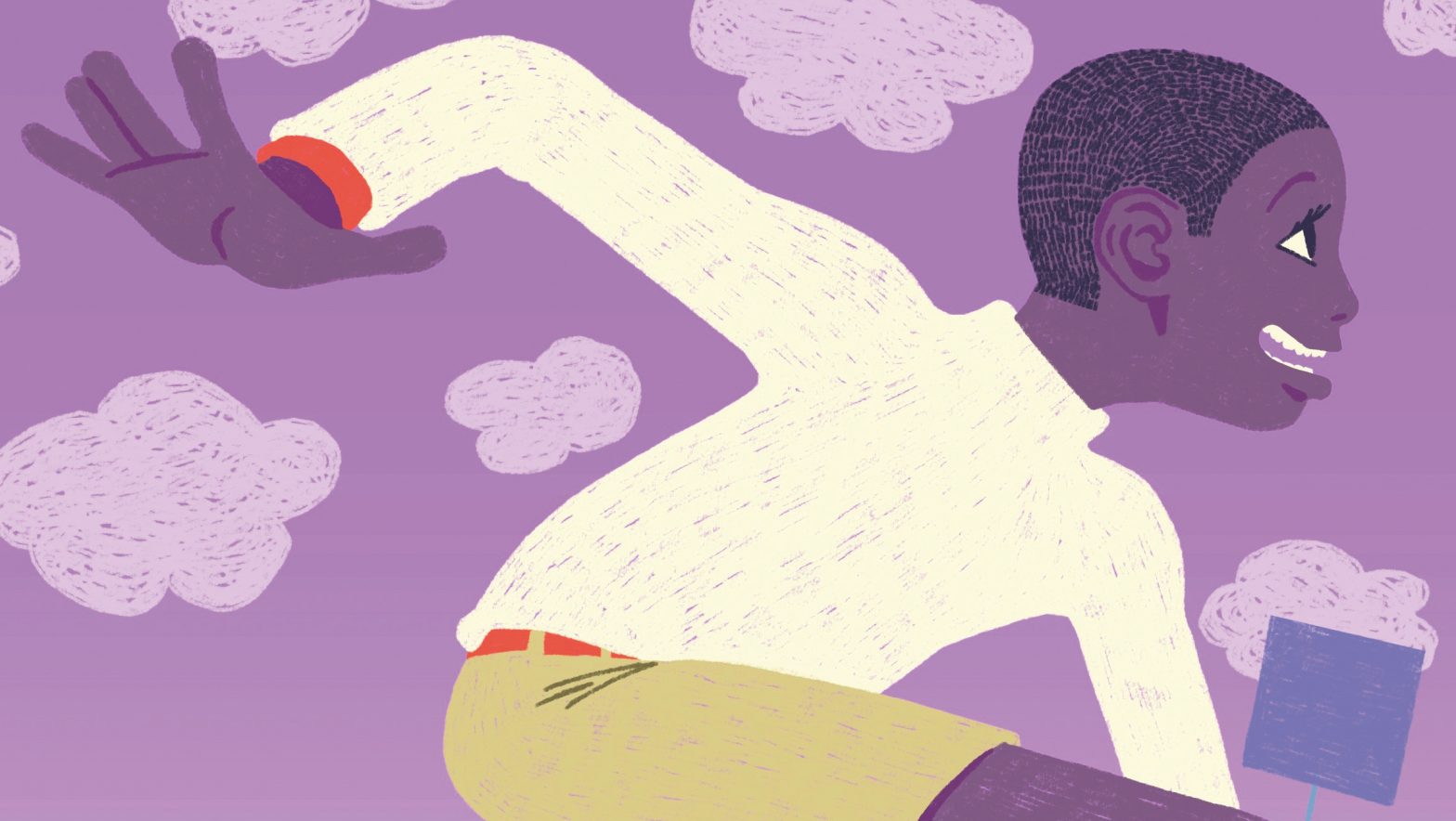The names in this story have been changed.
My friendship group was sitting in our local pub garden when we found out he was dead. Everyone had travelled home from university for the summer; we were crammed around one of the mouldy outdoor tables, faintly lit by old B&Q terrace lights and the glowing ends of cigarettes. “Did you hear about Daniel?” I remember the words but not who said them.
We met at primary school. He was a short, stout child with a shaved head and extra thick eyelashes that he’d flutter to worm his way out of punishment. Daniel was what the teachers referred to as “a troublemaker”.
To them, he was disruptive, but to us children he was a constant source of entertainment. He wore the title of class clown proudly; every lesson would be interrupted by a cheeky joke or a comically timed squeal. When we learned about reproduction, we had to sit through a 15-minute video complete with graphic diagrams. The moment the tape started, his high-pitched hyena-like giggle had us all spinning with laughter. His energy would have your mind fizzing as if you’d impulsively snorted Dip Dab sherbet.
In Year 5, Daniel was assigned a support worker called Chloe, a dishevelled woman who wore pink lipstick. She chaperoned him during lessons and gave him additional one-on-one time when he needed help with classwork. Every week, he would choose a partner to spend an hour playing games with as Chloe supervised. Each time, without fail, he’d choose me.
At first glance, the gaming room we’d sit in was wholly uninspiring: a small rectangle with plain white walls and a cheap navy carpet. However, during the hour we’d spent together, it became enthralling. Daniel would slap down playing cards in an effort to cheat through the game. Not to win, just to add an element of surprise. Sometimes, we’d fiddle around with a complicated puzzle and he’d hammer the wrong piece into place with boisterous impatience. Other times, we’d play computer games and he’d hog the mouse, furiously clicking at characters on the screen.
Charlotte would gently remind him to share. He’d soften at her words, timidly smiling at me with an earnestness that only children show when they’re trying to bond. I looked forward to these sessions with Daniel. It made me feel special to know that this silly, sensitive boy enjoyed spending time with me, and with each weekly session we became better friends.
When secondary school began, suddenly Daniel became someone I failed to recognise. The transition was rough for everyone: homework became a regular fixture, break time was reduced to a mere 20 minutes, and disobeying school rules came with the threat of punishment. Daniel didn’t take kindly to the newfound authoritarianism. Without a Charlotte-like figure in his corner and regular respite, he became restless and hostile.
A month in, he was suspended from school for fighting – one of many Black boys who have been let down by the UK’s education system.
In 2021, the Guardian published analysis highlighting that in certain local authorities, Black Caribbean students were up to six times more likely to be excluded than their white peers. “Exclusions essentially criminalise children, and disproportionately impact on the poorest and most vulnerable,” said Nicholas Treloar, a researcher at the race equality think-tank Runnymede Trust. “Children that, when excluded, do not have the socioeconomic means of buffering against the dangers of being out of school.” According to government figures from 2022, Black children make up 4% of the population aged 10 to 17 but 29% of the youth custody population. There is a strong correlation between school expulsion and those in youth custody.
When I found out Daniel had died, I furtively Googled his name. Part of me felt it had to be a bad rumour. The top search result was an article that said he’d been shot at point-blank range. The headline noted that he was a father; I treasured this tidbit I hadn’t known about him. I hadn’t seen him in years and so I stared at his pixelated face and let it imprint on my brain.

As I get older, my memories of Daniel become blurred. One thing that remains certain in my mind, however, is that Daniel wasn’t a troublemaker. He was a young boy who became a young father and someone who deserved a future where he could play with his child and teach them how to share – just as he had learned to do in that games room with me.
There’s a park behind our secondary school that we’d all head to after the last lesson of the day. My parents still live in the area, so I walk past it whenever I’m visiting home. As an adult, it’s a joy to watch children race up the hillside with the same wild excitement we once had.
Daniel spent the hours we were at school hanging out there. We’d meet him later, armed with strawberry laces and flying saucers from the corner shop. Afternoons were spent going down the slide backwards, slipping on the tarmac in Clarks shoes, chasing each other. Daniel would laugh riotously as he darted out of reach and taunted whoever narrowly missed him. This is one of the last memories I have of playing with Daniel.
Young Black boys are often stripped of their childhoods and demonised as violent individuals who don’t know what it means to be innocent. Daniel was troubled, but he also was kind, thoughtful and gentle. He was a person who made playtime during my childhood years that extra bit special.
